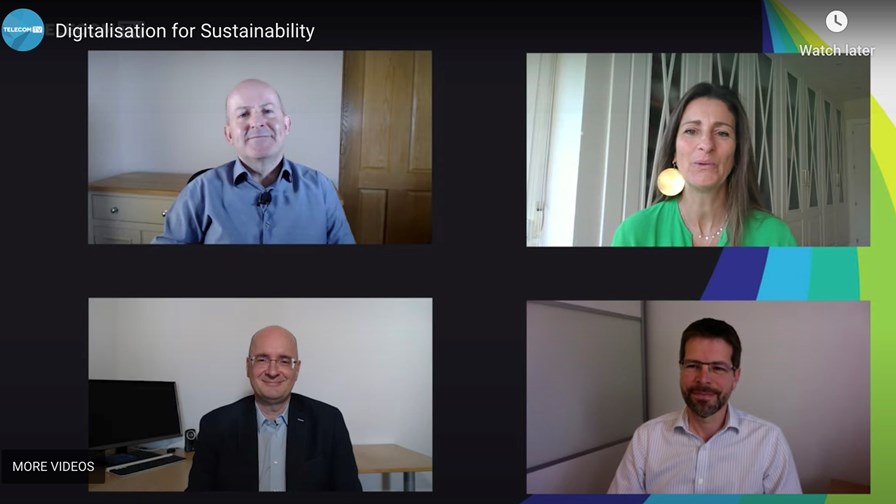
- DSP Leaders World Forum 2020 session focuses on sustainability efforts of major telcos
- Deutsche Telekom, Telefónica and Vodafone discuss their strategies
- Technology advances help reduce per-bit power consumption and monitor output
Efforts to support sustainability and reduce greenhouse gas emissions are at the heart of current network operator strategies for many more reasons than just saving money, a panel of experts noted during the DSP Leaders World Forum 2020 session Digitalisation for Sustainability.
A decade ago the industry was mainly focused on how it could save money by reducing its carbon footprint, but only in the past few years has digitalisation (and its associated power efficiencies) become truly possible, while society in general is now much more focussed on sustainability, noted Martin Kriha, VP of Smart Production & Automation at Deutsche Telekom.
Gema Esteban Garrido, ESG Investors & Non Financial Reporting Director at Telefónica, added that “investors and capital markets are paying more attention” to environmental, social and governance (ESG) criteria. “Climate change has been a major focus for investors in 2019 and today one third of assets under management, worth trillions of dollars or euros, are being managed under ESG criteria,” she noted, adding the technology has the potential to help significantly reduce global emissions during the coming decades.
“Digitalisation is going to be a main contributor to meet the ambition of zero net emissions by 2050… I think that technology and especially telecoms are really supporting other sectors to achieve these environmental goals,” she added.
Vodafone Group’s Head of Energy Performance, Bernd Leven, said climate change, in addition to financial savings, has become a much bigger focus for companies since the Paris Agreement was struck in late 2015.
He also noted that “the political framework changed a lot, so you have, for example, a regulatory framework for renewable markets. You can do power purchase agreements and… there are schemes available now facilitating renewable electricity. At the same time the costs for a lot of technologies have come down,” including not only renewables but also “narrowband IoT and various connectivity solutions… It's much easier to monitor energy consumption in production processes or use IoT applications for smart logistics and other purposes.”
Brian Aherne, Director Communications Infrastructure & General Manager at Intel, highlighted how innovation at the chip level in recent years is now enabling greater control over infrastructure elements and help to “unlock the true efficiencies of 5G networks and all the associated use cases… we need to unlock the dynamic capability of that underlying network… by way of the online power management features.”
Aherne said “the conversation has moved dramatically to looking at the telemetry on the platform, plugging that into a closed loop, automation systems that are available at telecom operators and how they take the insights that come from it and apply AI algorithms to generate insights and take action.”
For the full discussion, and to find out about the specific sustainability targets of the trio of telcos taking part in the session and how the broader telecoms ecosystem plays a role in reducing greenhouse gas emissions, check out the full session here.
Sustainability and the role the telecoms industry can play in achieving global targets will be among the topics discussed during the upcoming Extra Shot programs, which will look back at the highlights of the online DSP Leaders event and include the views of special guests. Look out for further details of the Extra Shot programs.
- Ray Le Maistre, Editorial Director, TelecomTV
Email Newsletters
Sign up to receive TelecomTV's top news and videos, plus exclusive subscriber-only content direct to your inbox.




